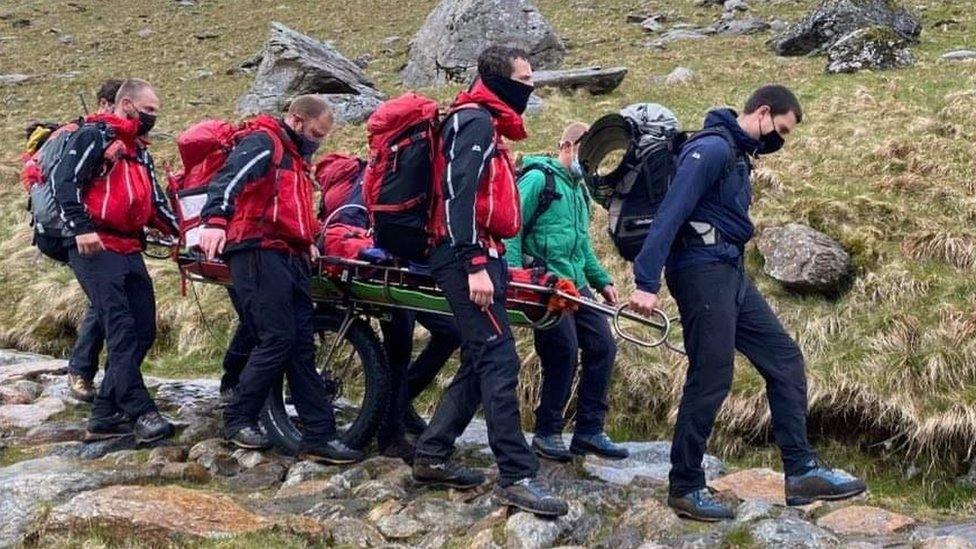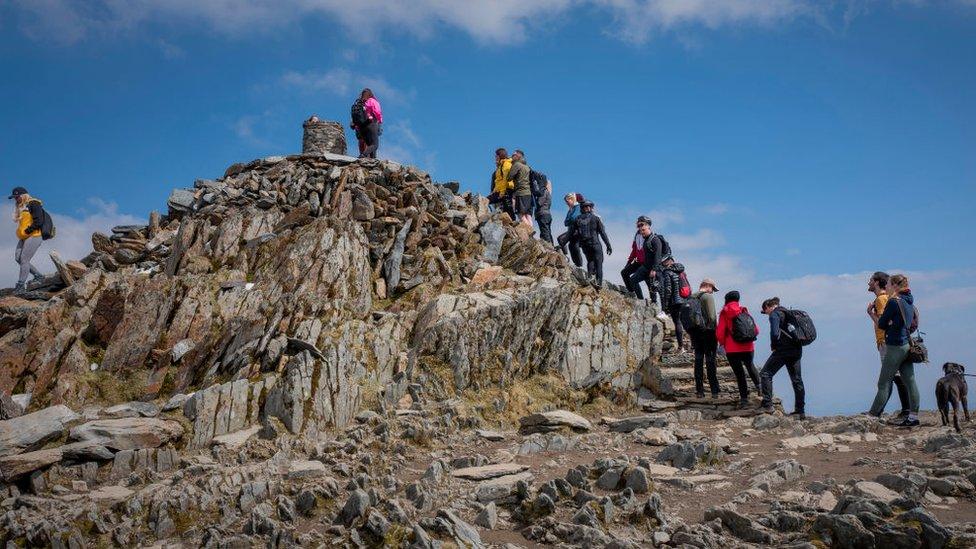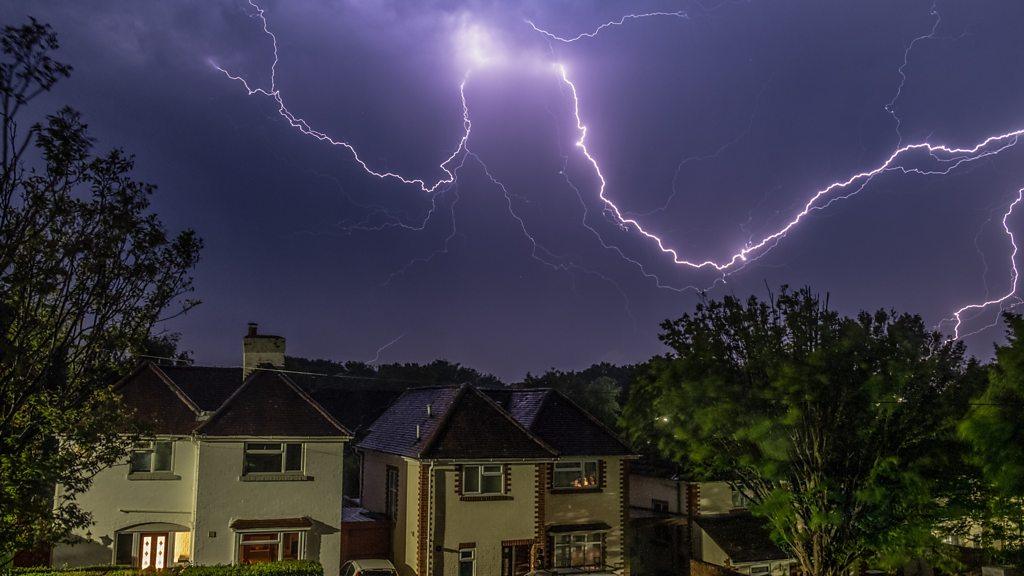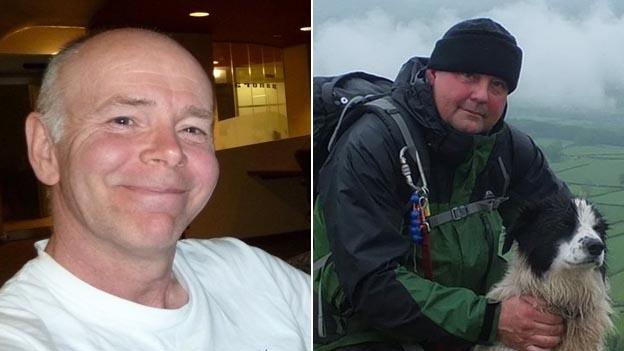Snowdon: Two women hit by lightning at mountain summit
- Published

The women were rescued from Snowdon's summit on Wednesday afternoon
Rescuers say two women are "very lucky" to be alive after they were hit by lightning on the summit of Snowdon, Wales' highest mountain.
The pair were in a five-strong group by its 3,560ft (1,085m) peak when they were struck just after 13:30 BST.
Llanberis Mountain Rescue Team was called out by North Wales Police to help rescue them.
The team said one woman "was falling in and out of consciousness", while the other had minor injuries.

The challenge of reaching Snowdon's summit attracts thousands of visitors every day
Both women were evacuated from the summit to a lower slope, before a coastguard helicopter took them to hospital in Bangor, Gwynedd.
Rescuers said neither woman had sustained life-threatening injuries.
The rest of their group, which had been visiting north Wales, were "clearly shocked but otherwise uninjured", said rescue co-ordinator Phil Benbow.
He added: "They were very lucky."
"But the advice generally is don't be on the top of a mountain when thunder and lightning is about.
"As a team we didn't hang around on the summit or the ridge going down."
Mr Benbow said the coastguard and Snowdon Mountain Railway helped the team ferry people and equipment up the mountain.
'Very busy' period
He revealed that the team had been "very busy" since June when Covid restrictions started to ease.
In July alone they had received 40 call-outs - a trend expected to continue throughout August and September.
He added: "Our advice is when thunderstorms are forecast people should avoid mountain tops, exposed ridges and open flat areas because that it where lightning is most likely to strike.
"Get a weather forecast before you start. And make sure it's a mountain weather forecast off the Met Office."
- Published24 July 2021

- Published3 September 2015
